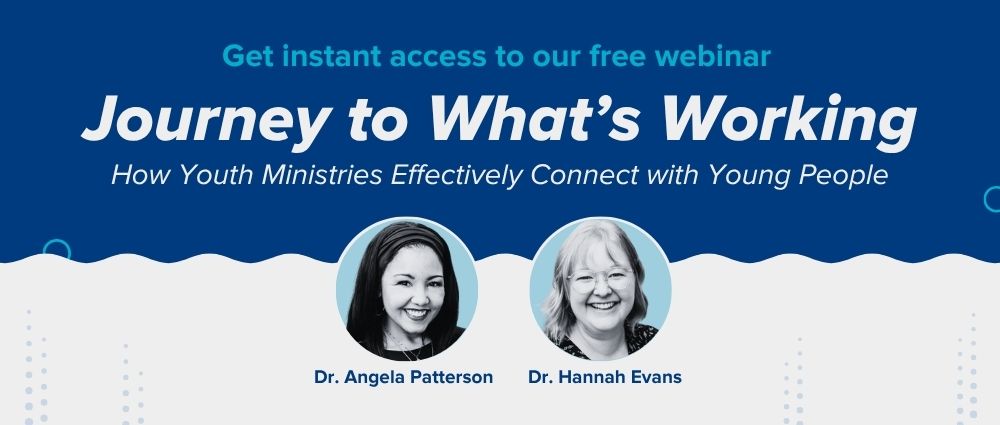
What Young People Want From Youth Ministry
For the past two years, the Springtide team has interviewed and surveyed young people and adults to discover how faith-based organizations are working to engage Gen Z. This research, funded in part by Lilly Endowment Inc., shows what young people want from youth ministry.
Behaviors young people want from youth ministry experiences
We surveyed more than 1,500 young people involved with Christian youth-serving organizations. Their responses to questions about what they needed or were looking for in a youth ministry followed three distinct themes:
Listen to us: When young people say they want adults who listen, they mean more than simply hearing what’s being said. They want adults who will meet them where they are, who will listen actively to what’s going on in their lives and come to those conversations with curiosity rather than judgment.
Understand us: Young people want adults to realize the society they’re growing up in is different from that of past generations, and it presents new challenges. They want adults who can share the experiences they’ve had while remembering that young people are in the process of learning, growing, and making mistakes along the way.
Align with us: Young people want environments where fun, meaningful relationships and spiritual growth are combined with intention. They want to be able to belong before they believe—and to have a place in the group even if they never come to adopt the tenets of the faith community.
Qualities young people want from youth ministry
In surveying young people as well as 1,700 youth-serving adults at Christian organizations, data show certain qualities appear in organizations that are successfully connecting with youth:
Fun: This quality may seem obvious for youth ministry, but our interviews and observations show that fun is more than games and activities. Sometimes having conversations about big questions or difficult topics can have elements of vulnerability and playfulness that make them fun. Fun can show up when nothing structured is happening—it can emerge organically simply by being together.
Inclusivity: Young people value spaces where they can show up as their authentic selves—and everyone else can too. Embedding equity in the fabric of the ministry makes young people feel welcomed, safe and valued, and provides an environment conducive to connection and spiritual growth.
Purpose: Young people want to find purpose in their lives, and in youth ministry, that often comes from various types of individual contributions or holding leadership roles within the community. Leaders who successfully connect with young people are often co-creating with them, allowing them to have a hand in shaping the experience. These opportunities help to create a sense of purpose.
Integrity: Young people crave meaningful relationships with adults they can trust. They want adults to show genuine interest and care for the young people they work with and demonstrate accountability when they make mistakes. Young people want adults who do what they say and show up authentically and consistently.
Adaptability: Successful youth ministry leaders note that the intention, creativity and resourcefulness that goes on behind the scenes is a big part of what sets the stage for ongoing connection—and most young people never see that part of the process. Leaders say that the ability to change course in response to youth or parent feedback is crucial to creating an environment that keeps young people coming back.
To hear more of these insights, register to access the on-demand version of Springtide’s Journey to Discover What’s Working webinar. To hear directly from youth-serving leaders about what’s successful in their ministries, access Springtide’s Youth Ministry Field Guide.




